Test Sieve Manufacturer
Friday September-12 2025 15:38:33
In the field of particle detection and material classification, the performance of Test Sieve directly determines the reliability of analysis results, and choosing a professional manufacturer is the prerequisite for obtaining high-quality products. Currently, the qualifications of Test Sieve Manufacturer in the market vary, and some manufacturers have problems such as rough craftsmanship and vague standards, which may lead to detection errors. High-quality manufacturers can not only provide products that meet international standards such as ISO and ASTM but also offer customized solutions according to scenario needs, providing stable support for laboratory research and industrial production. Therefore, mastering the method of selecting manufacturers, understanding the advantages of reliable manufacturers, and product applications are crucial for purchasers.
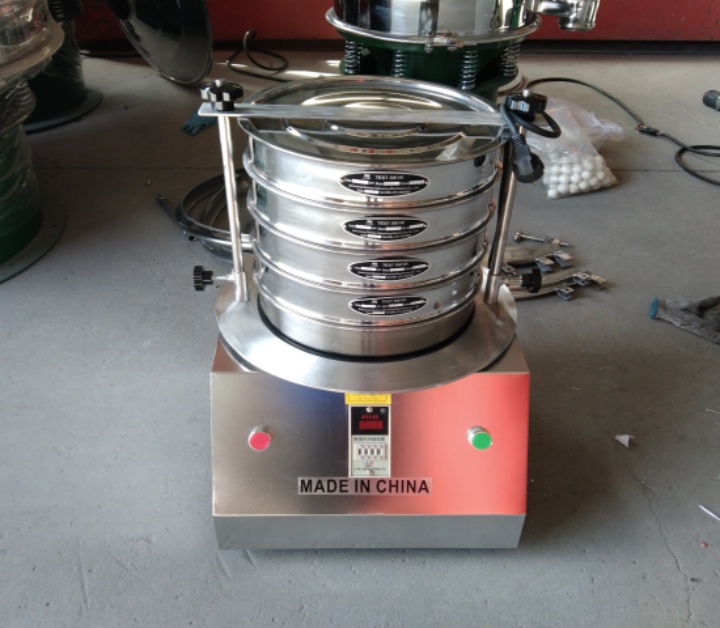
How to select a test sieve?
The selection of a test sieve should first be based on the material characteristics. For fine particle size, select a high mesh number. For high-humidity/easy-aggregation materials, a model with a screen-cleaning structure is preferred. Then, the screening accuracy requirements and production efficiency needs should be matched. Customization is available for special scenarios.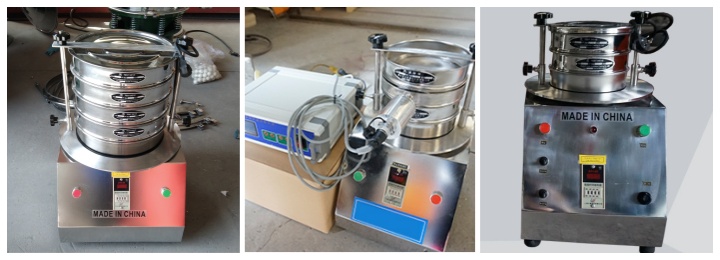
Ordinary test sieve: It is the most basic type, relying on the material's own gravity or mechanical vibration (such as sieve shakers, tapping sieves) to pass through the sieve mesh. It has a simple structure, is easy to operate, and has low cost. It is suitable for dry materials with good fluidity, low tendency to agglomerate, low water content, and relatively large particle size (usually above 100 mesh/150μm), such as classification of construction sand and gravel aggregates, screening of coarsely ground mineral powder, and particle size testing of ordinary chemical raw materials.
Ultrasonic test sieve: It is equipped with an ultrasonic generator on an ordinary sieve frame. High-frequency, low-amplitude mechanical waves are transmitted to the sieve mesh, effectively solving problems such as electrostatic adsorption, agglomeration, and mesh blockage of fine powders (especially <400 mesh/38μm), and significantly improving screening efficiency and accuracy. It is suitable for materials that are prone to static electricity, agglomeration, high adsorption, ultra-fine powders (such as 300 mesh-1000 mesh or even finer), or slightly damp materials, such as fine ceramic powder, graphene powder, metal powder, pharmaceutical micro-powder, pigments, magnetic materials.
Electromagnetic ultrasonic test sieve: It combines high-frequency vibration driven by electromagnetism and an optional ultrasonic system. The electromagnetic drive provides stronger, controllable three-dimensional high-frequency vibration with adjustable amplitude, strong penetration, and faster screening speed; if ultrasonic waves are superimposed, it also has the ability to solve the agglomeration of ultra-fine powders. It is suitable for handling difficult-to-screen, high-viscosity, high-density materials or those with extremely high screening efficiency requirements, such as kaolin slurry, pre-screening of ore slurry, metal powder, fine chemical catalysts, nanomaterials.
What is the highest mesh count available for a test sieve manufacturer?
As a professional test sieve manufacturer, we leverage advanced technology and high-quality materials to break through conventional limitations. An 1800 mesh screen can precisely separate fine particles, meeting the needs of ultra-fine material screening.
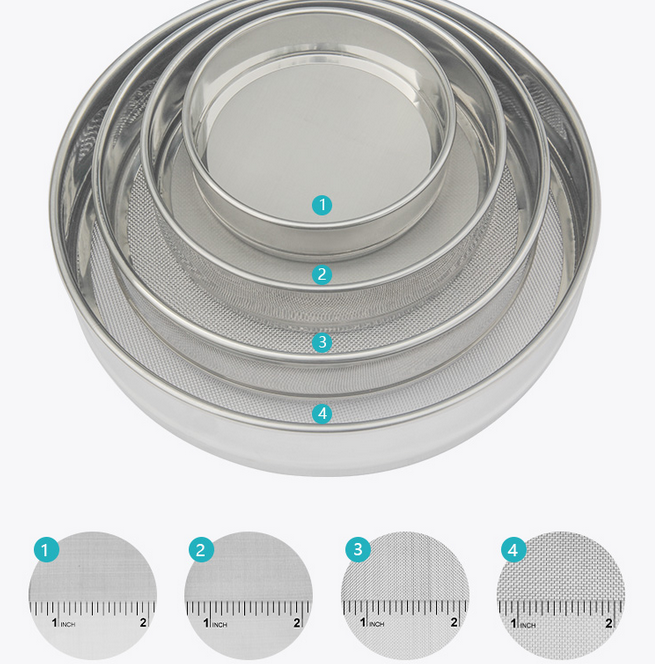
2-14 mesh: Suitable for screening larger particles such as soybeans, rice, buckwheat, and cassia seeds.
20-60 mesh: Suitable for screening food ingredients such as flour, grains, rice flour, and cornmeal, removing larger impurities or controlling particle size.
80-120 mesh: Suitable for filtering liquid or semi-fluid materials such as soy milk, oral Chinese medicine powder, and honey.
150-325 mesh: Commonly used for filtering pearl powder, medicinal residues, soup residue, tea water, and cooking oil, producing a finer filtrate or powder. 400-1800 mesh: suitable for screening fine materials such as metal powder, chemical powder, pigment, graphite powder, etc. These materials usually require higher screening accuracy to ensure product quality.
What materials are available for test sieves from Test Sieve Manufacturer?
In the field of test sieve manufacturers, the material choice directly impacts screening performance and equipment life. We primarily offer stainless steel, brass, and nylon sieves, each with its own unique performance characteristics and suited for different applications.

Stainless steel test sieves: Mostly made of 304 or 316 steel, they offer excellent corrosion resistance and are suitable for screening acidic and alkaline materials, ensuring long-term stable operation. Their mesh is strong and resists deformation.
Brass test sieves: Brass's soft texture reduces wear during the screening process and is particularly suitable for easily scratched and fragile materials, such as fine metal powders in electronic component production. Its excellent conductivity makes it particularly advantageous in screening static-sensitive materials, preventing safety issues caused by static electricity buildup.
Nylon sieves: Their flexibility and excellent chemical resistance make them suitable for screening wet and sticky materials. They are often used in food processing to grade wet starches, syrups, and other materials.
What are the main application scenarios of test sieves?
Due to its own characteristics, the test sieve is widely used in industrial production, scientific research and testing, quality control and other fields. It is a key tool to ensure that the material particle size meets the standard and guarantee product quality.
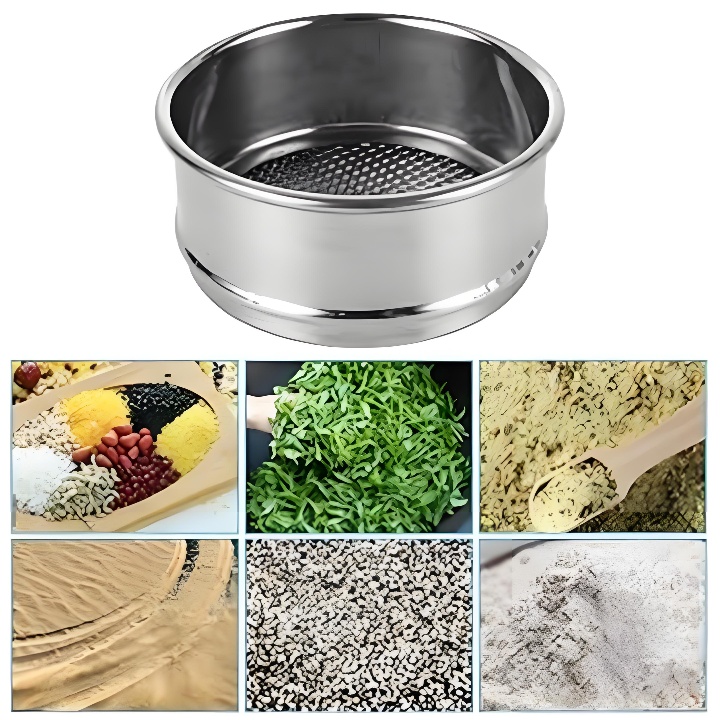
Ore processing field: Used for classifying and screening mineral powders of different particle sizes to control ore dressing efficiency.
Scientific research and testing field: In laboratories, it provides particle distribution data for the research and development of new materials (such as battery cathode materials).
Pharmaceutical industry: Controls the particle size of pharmaceutical excipients through pharmacopoeia sieves to ensure uniform drug release.
Food industry: Used for fineness testing of materials such as flour and sugar particles to ensure taste and safety.
What are the key points to consider when choosing a test sieve manufacturer?
When selecting a Test Sieve Manufacturer, a comprehensive assessment should be conducted from three aspects: qualification certification, production technology, and service capabilities to ensure that the product meets standards and meets personalized needs, so as to avoid affecting the test results.
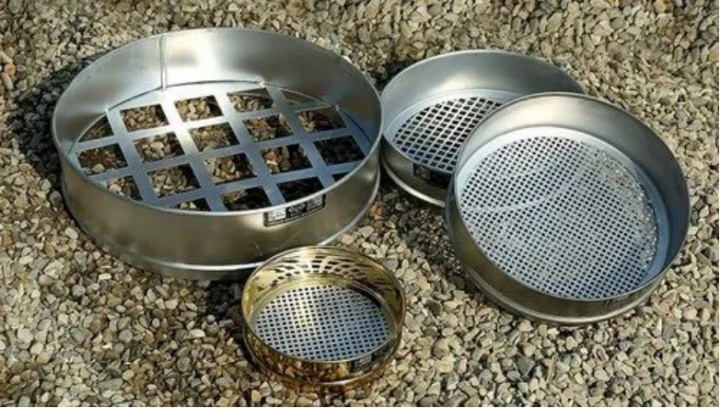
Priority should be given to examining the manufacturer's qualification certifications: whether they have passed international standard certifications such as ISO 3310-1 and ASTM E11, which are the basic guarantee for product accuracy. Second, pay attention to production processes: details such as sieve mesh welding technology and frame flatness treatment directly affect screening stability. At the same time, confirm whether customized services are provided: whether they can meet the needs of special aperture sizes, materials (such as 316L stainless steel), and whether after-sales services include calibration, maintenance, etc.
What are the core advantages of the test sieves produced by our factory?
The test sieves produced by our factory have the advantages of high precision, full specifications, diverse types, comprehensive services, and support for non-standard customization. We can provide you with suitable screening machines based on your production site to meet different particle size screening needs.
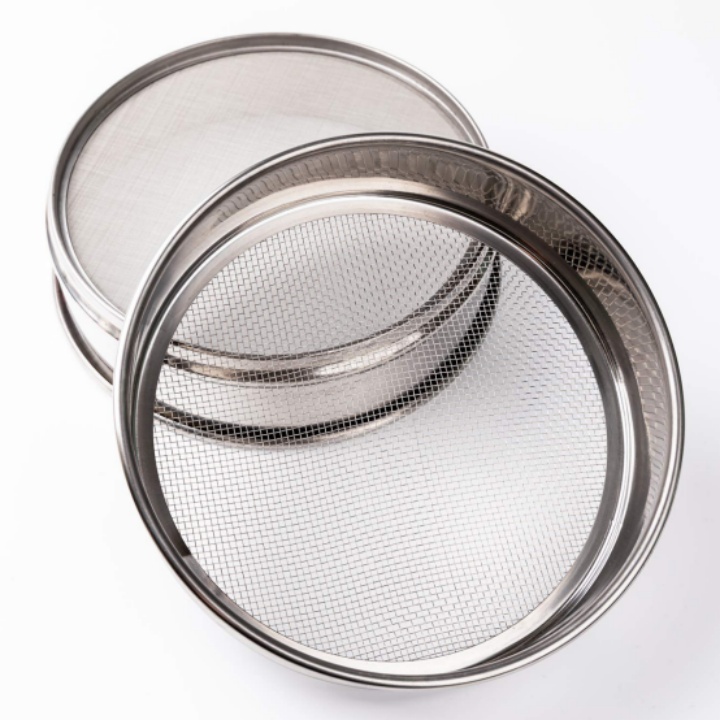
High-precision manufacturing: The sieve mesh is made of imported stainless steel wires, processed through laser cutting and electrolytic polishing techniques, with aperture error controlled within ≤3% to ensure screening accuracy.
Full specification coverage: Customization of various specifications is supported, with product sizes ranging from 75mm laboratory small sieves to 600mm industrial large sieves, meeting the needs of different scenarios.
Diversified types: Covering various types such as dry sieves and corrosion-resistant wet sieves, suitable for different material screening conditions.
Thoughtful service: Provide free pre-selection guidance and post-calibration services to help customers accurately select suitable products.
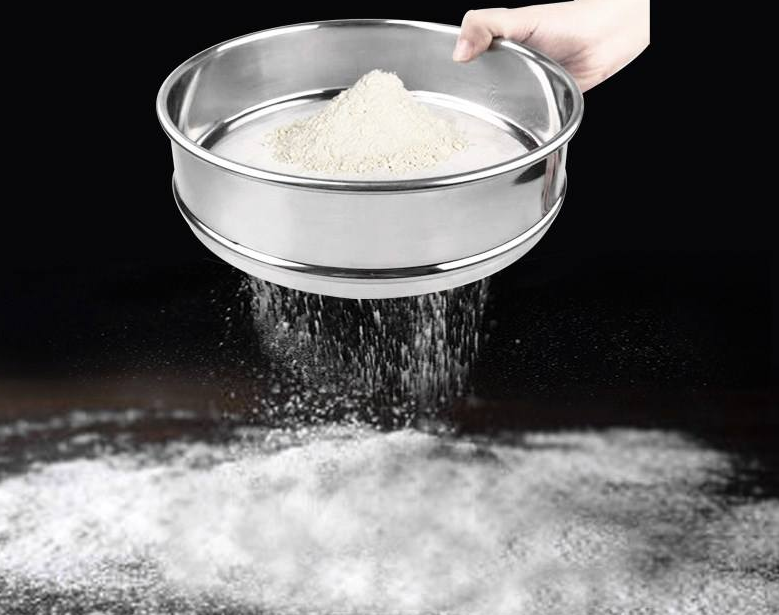
When choosing a test sieve manufacturer, it is necessary to comprehensively consider qualifications, craftsmanship, and services to obtain high-quality products that meet needs. The test sieves produced by our factory have sieve mesh count accuracy error controlled within ±0.3%; imported 304 stainless steel material is used, with no rust after 2000 hours of salt spray testing, and service life increased by 40%; the original laser cutting technology controls the sieve hole size error within ±0.05mm, ensuring the repeatability CV value of screening results is <1.5%. Whether you need standard sieves of conventional specifications or customized models for special scenarios, we can provide precise solutions. From sieve mesh count, frame material to sieve layer combination, we meet the particle detection needs of all industries such as chemical industry, food, and geology. Welcome to contact us at any time to obtain an exclusive screening plan.
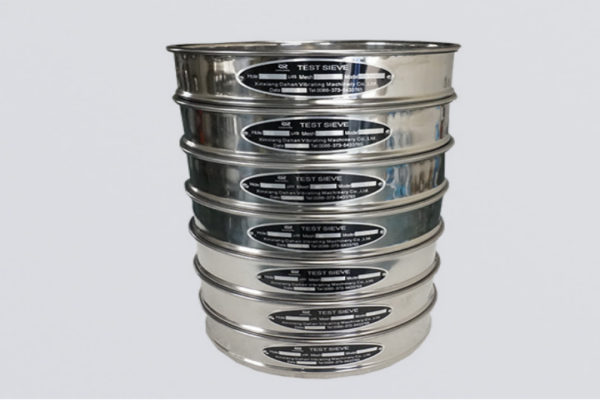 Test Sieve
Test Sieve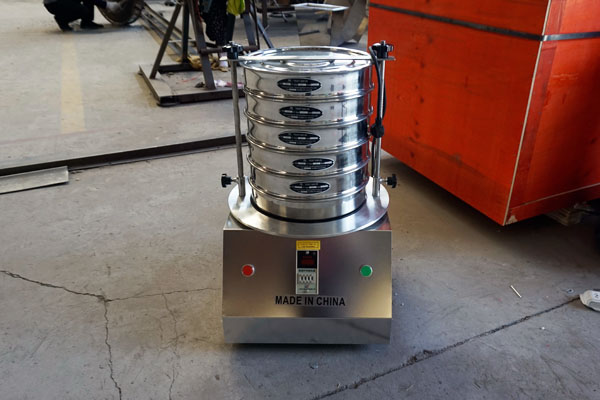 Sieve Shaker
Sieve Shaker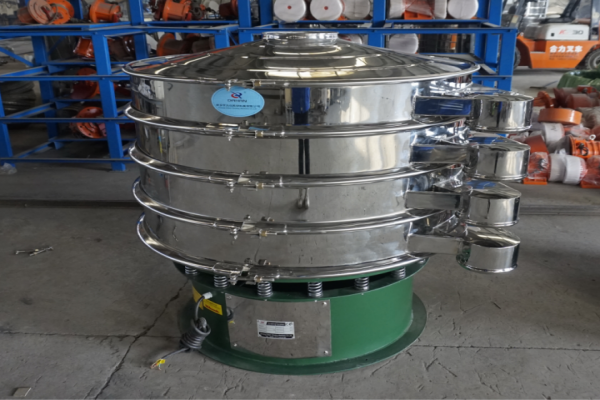 Industrial Sieve Machine
Industrial Sieve Machine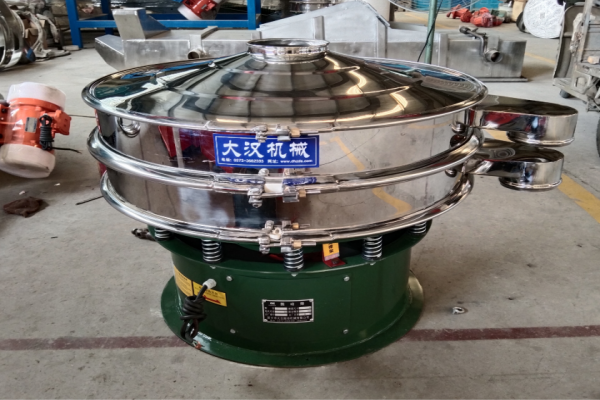 Round Vibrating Sifter
Round Vibrating Sifter